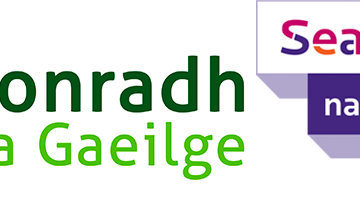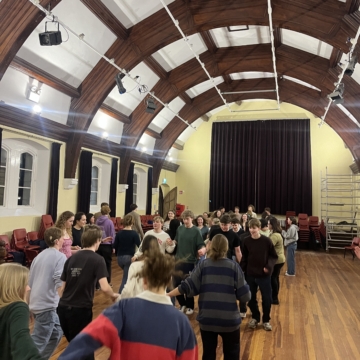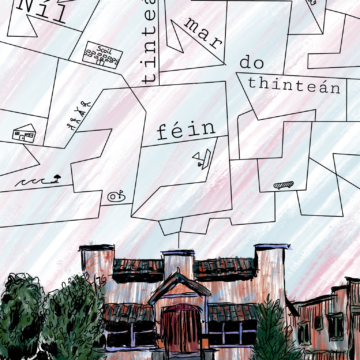Warden’s Thoughts on …. Modern Language Teaching
There was an article in the British Sunday Times this last weekend which decried the almost total collapse of modern language teaching in UK schools. The requirement to take a language at GCSE was dropped in 2004, so I guess the demise was inevitable. Many 6th Form colleges no longer even offer languages. Ireland is not the UK, and a direct comparison cannot be made, but it should serve as a warning to us over here that if the message is sent out by governments that certain subjects are of less value than others, there will be consequences.
Firstly, a couple of things about the UK system which I believe are flawed. Such is the cost of taking a degree in the UK these days that there is an ever-increasing focus on doing a degree that leads directly into a particular job or career. If I am going to finish university with a huge debt then I at least want to ensure that I have a job to go straight into, so it makes sense to do Business or Management, or Marketing or Accountancy, or Law etc. A degree in Modern Languages or Classics, or English or History, is thereby seen as a luxury that many cannot afford. Those who do such degrees often need to do further studies to train themselves for a specific career path, even though they have developed communication skills and an understanding of the humanities which may enable them to navigate workplace relationships better than others. The study of literature and history, art and music, language and culture, helps us to develop empathy and compassion, the very things that make us a human in the first place. Get rid of those and you are losing a lot more than you realise.
Secondly, the narrowness of the A level system, where most pupils study only three subjects for their last two years at school, means that there is a strong emphasis on choosing subjects at A Level that will lead to degree choices that are more likely to lead directly to jobs. An A Level in the humanities may feed the mind but it may not lead to a substantial salary in the first year or two, so why do it? Russell Group universities may not mind a language in the mix of A Levels that a pupil does, but they certainly don’t like the creative arts and any pupil at a top academic school who suggests that they may wish to do Drama, Art or Music at A Level is quickly told to get serious….unless it is included as a fourth or fifth option, which is increasingly rare. The result of this is that the creative arts in the UK are dying on the curriculum.
Enough of the negative in the UK…what of the positive in Ireland? Here our pupils do seven subjects at Leaving Certificate, immediately ensuring a healthy balance of humanities and STEM subjects. What is more, Irish is compulsory for most and a modern language, while not a requirement for a Leaving Certificate, is a requirement for many top courses and universities. Here at St. Columba’s we require all our pupils to take a modern language and that is as it should be and hopefully will always be. Of course, Ireland is in the EU, so it perhaps has a healthier worldview than the UK. The English have always thought that it is incumbent on everyone else to learn English, which is extremely arrogant…I am English, by the way, so I can say that.
And now some speculation…in a few years’ time many of the tasks undertaken by those with degrees in Business and Finance and Technology will be undertaken by AI. Companies will be crying out for young graduates who can communicate well, show empathy for others, who may have another language and who can work in teams. Provided that there is no short-sighted change to the Leaving Certificate curriculum, Irish graduates will tick those boxes and find themselves in high demand. I do believe very much that we have a much better balance over here and that the UK would do well to broaden its final years curriculum and do something to incentivise and encourage modern languages, and the humanities as a whole before it is too late.










